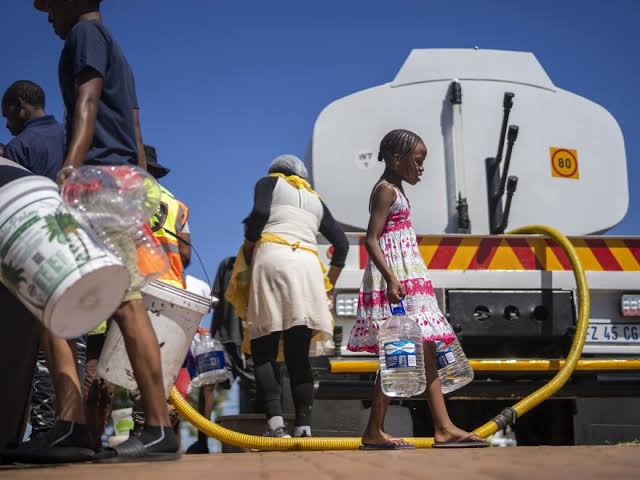Numerous families are compelled to endure lengthy waits for water access, while businesses reliant on refrigeration are experiencing increasing financial setbacks.
Jolinette Gaba, a 24-year-old mother, recounted her challenging experience in securing water for her seven-month-old child.
“We arrived here at midnight to collect water, despite the dangers present in some parts of our neighborhood. We often wait for hours before we can obtain enough water to prepare meals for our children. If water is unavailable, we have no choice but to remain here, regardless of the time. Sometimes, we manage to get some around 5 PM. Just the other day, I left home at 5 AM and returned around 5 PM without having found any,” she shared with AFP.
She also highlighted the difficulties in childcare, revealing that she often has to leave her baby at home while searching for water. “If I can’t locate any, my baby’s clothes might sit in a basin of dirty water for two or three days, often teeming with germs. How can we survive under these circumstances?” she lamented.
The crisis is also severely affecting local businesses. Patrick Kourama, a vendor at the Boyrabe market, discussed how power outages have resulted in food spoilage and economic losses.
See more: Telegram’s Durov allowed to leave France amid probe
Kourama stated, “Most of our products are frozen, so we rely on electricity to keep them fresh for our customers. Items like chicken wings, backs, and thighs must be kept fresh. The most concerning are fish like tuna, which can spoil very quickly without power.”





